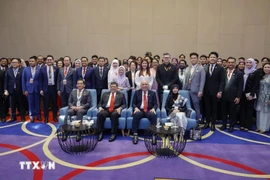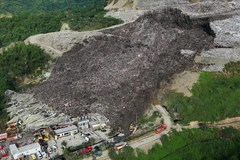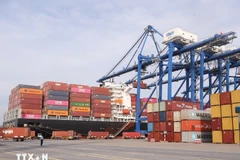Kuala Lumpur (VNA) - Malaysia has reached a significant milestone in forest conservation with the launch of the Forest Conservation Certificate (FCC), a non-market mechanism designed to mobilise private sector financing for forest conservation projects nationwide.
The initiative was unveiled at the ESG Xchange 2025 Conference held in Hong Kong (China), bringing Malaysia closer to becoming the second country, after Costa Rica, to be recognised under Article 6.8 of the Paris Agreement on climate change.
Delivering a keynote speech at the opening session of ESG Xchange 2025, Malaysia Forest Fund (MFF) chief executive officer Mohamed Shah Redza Hussain announced that 80 sites across the country have been identified as conservation locations, with 16 sites fully assessed for FCC projects.
At the conference, Malaysia also urged international environmental, social, and governance (ESG) investors to support forest conservation through the Malaysian FCC protocol, which has been developed as a verified instrument with independent monitoring, reporting, and third- party verification.
This, Shah Redza noted, enables corporations and governments to invest in conservation efforts outside market based mechanisms, positioning FCC as a certified conservation financing model that aligns with ESG criteria.
Shah Redza further emphasised that recognition under Article 6.8 will allow Malaysia to receive international financing for forest conservation project, the benefit of which are substantial, as international funding will enable Malaysia to undertake extensive forest restoration and conservation projects without being fully reliant on government funding.
Beyond FCC, Malaysia, through MFF, is also in the final stages of developing a national standard for Forest Carbon Offset (FCO), which is expected to be completed by the end of the year, with full implementation planned for next year. This initiative positions Malaysia as a leader in carbon-based forest conservation, providing a structured framework for international investors to support nature-based climate mitigation strategies./.




























